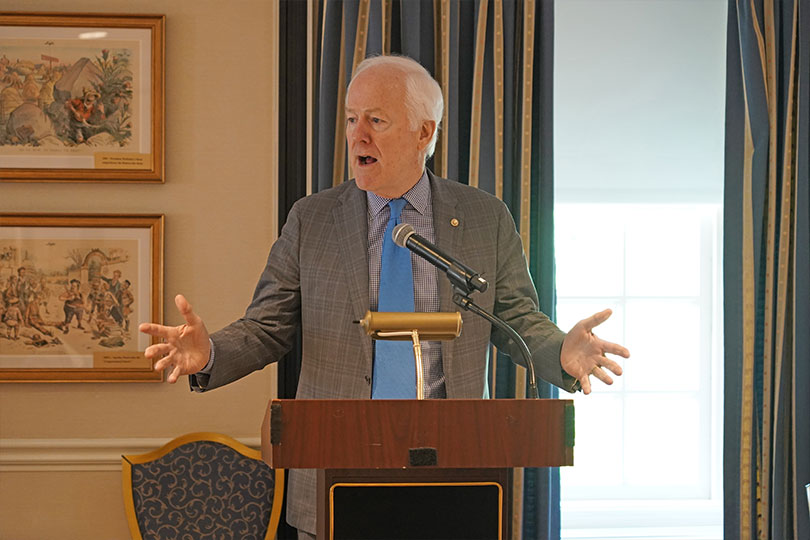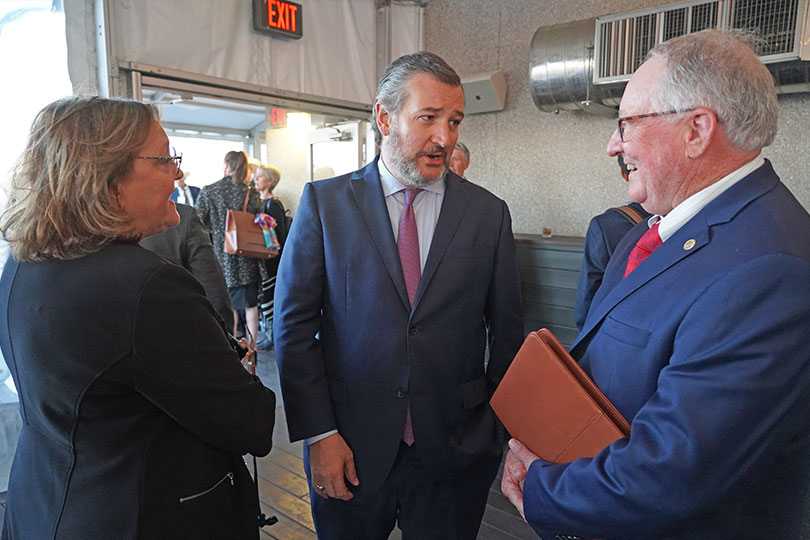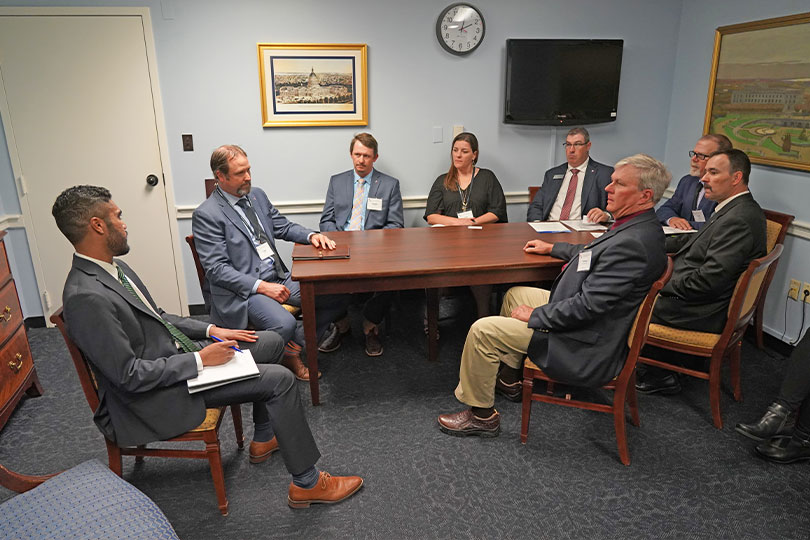By Julie Tomascik
Editor
A farmer’s job is not always in the field. At times it’s walking the halls of Washington, D.C., talking to lawmakers about the issues important to agriculture and rural America.
That’s what more than 240 farmers and ranchers did in late April—visited Capitol Hill to talk cattle prices, disaster assistance, border security and immigration, trade and the farm bill as part of Texas Farm Bureau’s (TFB) National Affairs Awards Trip.
It was the first time for members to travel to the nation’s capital since the COVID-19 pandemic.
“It’s great that we were able to be in D.C. again as a big group, and I appreciate our members taking the time away from their farms and ranches,” TFB President Russell Boening said.
Both TFB and the American Farm Bureau Federation have staff who work with lawmakers in Washington, D.C. on behalf of members. But it’s the people who are impacted most by potential legislation that really hits home.
“It’s imperative that we do this. It’s very crucial to meet with our congressional leaders,” Boening said. “When they can hear from the folks back home, when they can hear how things actually affect their constituents on their farms and ranches, that’s what resonates.”
Their voices echoed the halls and offices on Capitol Hill as they tackled issues affecting agriculture.
Farm Bureau leaders met with members of the Texas congressional delegation or their staff, as well as heard from U.S. Sens. John Cornyn and Ted Cruz.
“The office visits were great. We visited mostly with staff, which is fantastic because we know that working with staff is the fastest and best way to our elected officials,” TFB Vice President and District 1 State Director Pat McDowell said. “They asked for specifics about different bills, and I think that’s really neat when we can tell them what’s happening at home and how it’s actually affecting us. They want to actually visit with members of Texas Farm Bureau. We have a tremendous amount of validity and respect from these people, and that’s something that’s very important, and we’re kind of reaping the benefits from that.”
Farm bill discussions are beginning, and this trip gave farmers and ranchers the opportunity to discuss risk management tools that are important in uncertain and volatile markets like what agriculture has faced since the COVID-19 pandemic.

Cornyn touched on those supply chain issues and inflation in his address to the group.
“The thing I hear most from the ag sector is the impact of inflation on all of the inputs needed to grow crops or raise livestock,” he said. “And one of the things that’s happened with the invasion of Ukraine is energy security is now part of the conversation rather than just emissions or climate.”
Cruz also addressed the group, noting agriculture is dealing with rising production costs, taxes and government regulations.

“The ag community is the beating heart of our state, but you’re seeing the cost of running your farm, running your ranch going up on every front. The inflation from Washington is a real problem. Every time the government spends trillions of dollars, prints trillions of dollars that we don’t have, the result is it drives up inflation. We need to rein it in,” he said. “And Texas farmers and ranchers don’t want to see new rules and regulations coming from Washington that make it harder to run a farm.”
While TFB members were in D.C., both the House and Senate held hearings on cattle market legislation.
“We had a lot of discussion about cattle markets and packer concentration,” Boening said. “We are opposed to the Cattle Price Discovery and Transparency Act the way it’s written because of the government mandates on how packers have to buy cattle.”
Finding a long-term solution to securing the Texas-Mexico border also was a key topic of discussion.
“Our congressional delegation gets the issue, they really do,” Boening said. “But we have to keep working on that. We have to keep talking about the need for border security. We have members down there who are living it and suffering through it every day, and we need a workable solution to this crisis.”
Conversations also centered around taxes, the re-write of the Waters of the U.S. rule, disaster assistance and trade.
Members of the current AgLead class were also in attendance.
The trip to Capitol Hill was held April 26-29.

